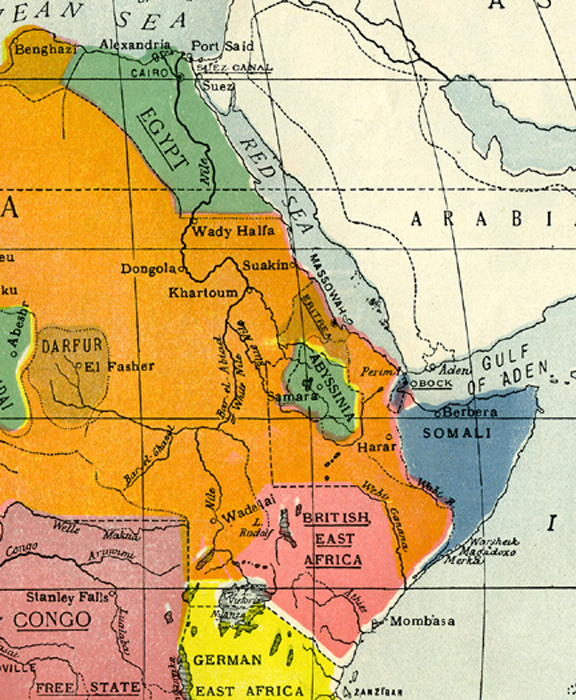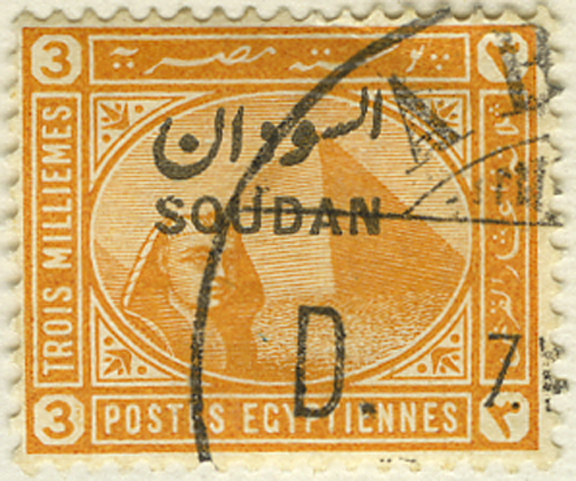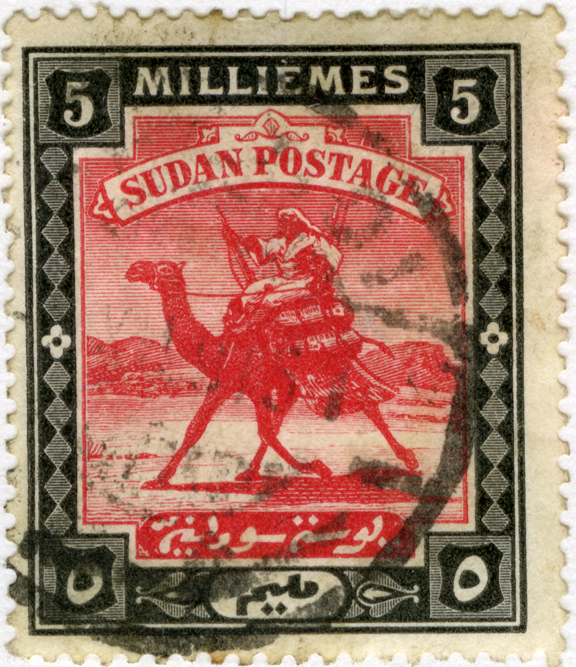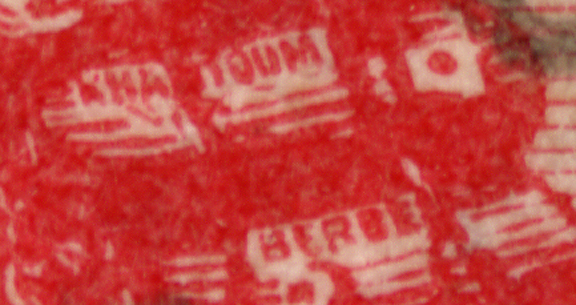Sudan
Early Definitives

The 1908 edition of The International Postage Stamp Album includes a map of Africa,
copyright 1893, in which Sudan is not identified as a distinct political entity.
Egyptian Post Offices were established in Sudan (Suakin and Kassala) as early as 1867 and expanded to many other centres including Khartoum, Berber and Dongala during the 1870's. The Mahdist War disrupted services between 1882 and the Anglo-Egyptian reconquest in 1897 when Egyptian stamps overprinted "Soudan" were issued.

One of a set of eight Egyptian definitives overprinted for use in Sudan in 1897.
Counterfeits of this first set of definitives are common. Large numbers of cancelled Egyptian definitives were overprinted in Geneva for philatelic markets.

Camel Post Definitive Design of 1898
The Sudan camel post definitive was issued in 1898 and continued in use for 53 years (with one seven year break). The design by Bimbashi (Captain) E.A. Stanton, a prominant British philatelist, featured an Arab postman riding a racing camel. At the time when the design was done, the cities of Khartoum and Berbera which are named on two of the mailbags were still in the hands of the Mahdi. The design was eventually adopted as the national symbol of Sudan.

Mail bags inscribed "Khartoum" and "Berbera" -- cities not
yet controlled by the British when the stamps were issued.
Bibliography
Mackay, James. The Guinnness Book of Stamps Facts and Feats. Enfield, Middlesex:
Guinness Books, 1988.
Rossiter, Stuart and John Flower. The Stamp Atlas. London: Macdonald, 1986.
Serrane, Fernand; Cortland Eyer trans. The Serrane Guide Stamp Forgeries of the World to 1926. State College, Penn.: American Philatelic Society, 1998.
"Sudan." Standard Postage Stamp Catalogue. 2005.
Direct comments, questions and corrections to:
stampquestions@hotmail.com
© Grose Educational Media, 2007-2018
|